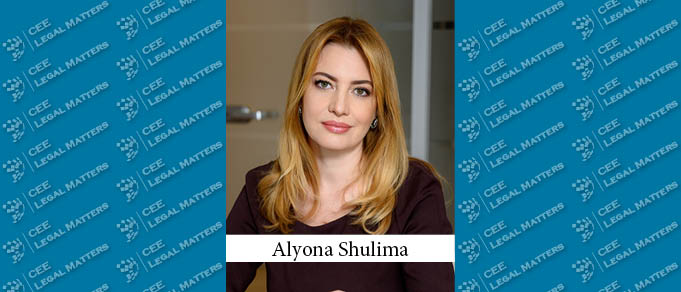Bulgaria’s accession to NATO in 2004 challenged the country’s army to modernize its armaments and replace obsolete military equipment. This is a multi-stage process, based on a series of political decisions and a consistent implementation of a long-term strategy. Bulgaria must catch up with the other CEE members of the Alliance, which have already completed or are in an advanced stage of modernizing their armies and are already in the capacity-building process. What Bulgaria is planning, how that plan is being executed, and what opportunities we should look forward to in the near future are critical considerations.
The Somewhat Surprising Side Effects of the Coronavirus Pandemic in Bulgaria
A year ago, Bulgaria took its first steps into a new world after several months of almost total lockdown following the outbreak of the COVID-19 pandemic.
Bulgaria – Insolvency in the Spotlight
The July 17, 2021 deadline for implementing Directive (EU) 2019/1023 of the European Parliament and of the Council of June 20, 2019, on preventive restructuring frameworks, on discharge of debt and disqualifications, and on measures to increase the efficiency of procedures concerning restructuring, insolvency, and discharge of debt, and amending Directive (EU) 2017/1132 is quickly approaching, leaving little time for EU Member States to adjust their national legislations to its requirements.
Extractive Industries: New and Prospective Regulation in Ukraine
While mineral extraction in Ukraine has a high potential for development and attracting investment, it always entails ecological risks which must be properly mitigated. Recently adopted laws, as well as legislation currently considered by Parliament, are aimed at balancing economic development and environmental protection.
M&A in Ukraine
Like the rest of the world, the Ukrainian M&A market was dramatically hit by the coronavirus (COVID-19) pandemic. Indeed, the number of M&A deals decreased in 2020, for the first time since 2014. However, the fourth quarter of 2020 saw a positive surge in the number of M&A deals, and although most of those deals started before the pandemic, the fact that they still happened sent a clear signal: investors are ready to buy in the new reality.
Long-awaited Bill on Preventive Restructurings Finally Released. What Changes Will It Bring to Czech Insolvency Law?
The Czech Ministry of Justice recently published a bill on preventive restructurings (the "Bill") implementing the directive on preventive restructuring frameworks which will introduce a brand-new legal tool preventing the insolvency of viable enterprises in temporary financial difficulties.
Turkish Constitutional Court Ruled that Prolonged Preliminary Injunction Violates Right to Property
On April 13, 2021, Turkish Constitutional Court [the “Court”] ruled that the applicant's right to property is violated because his assets have been restricted by a preliminary injunction for 15 years. The judgement emphasized that for a preliminary injunction restricting right to property to be deemed proportionate, proportionality should be established in terms of both the scope and the duration of the injunction.
The Croatian Act on the Prohibition of Unfair Trading Practices in the Food Supply Chain aligned with EU rules
The amendments of the Act on the Prohibition of Unfair Trading Practices in the Food Supply Chain (the “Amended Act”) shall enter into force on 1 September 2021, with a few exceptions. The main reason for adopting these amendments was transposition of the Directive (EU) 2019/633 of the European Parliament and of the Council of 17 April 2019 on unfair trading practices in business-to-business relationships in the agricultural and food supply chain (the “Directive”) into the local legal regime. The Directive aims to set out the minimum Union standard of protection by harmonizing Member States’ diverging measures relating to unfair trading practices. With these amendments, the Amended Act is further harmonized with EU acquis.
Application of Serbian Standards for Tobacco and Tobacco Products Will be Exclusively on Voluntary Basis
Previously Yugoslav (JUS), and now Serbian (SRPS) standards for tobacco and tobacco products, dating back from the sixties and eighties of the 20th century, are no longer mandatory. Starting from 10 July 2021, manufacturers of tobacco and tobacco products, including cigarettes, are not obliged to place products in the market that meet the requirements established by these standards.
(Un)finished Business of Restitution
The new Polish restitution law has been enacted and signed by the President. It solves the problem of restitution claims by making a clean break and doing away with them altogether. But is that the end of the story?
Turkey’s First National Artificial Intelligence Strategy (2021-2025) Has Been Published
The National Artificial Intelligence Strategy [“the Strategy”] which was recently announced via a Circular, was unveiled on 24.08.2021 and published by the Digital Transformation Office of the Presidency of the Republic of Turkey [“DTO”].
North Macedonia: New Amendments to the Law on Financial Support of Investments
In August 2021, the Law on Financial Support of Investments (“Law”) in North Macedonia has undergone several amendments. Changes are focused on easing the conditions for application, affecting the balanced regional development, and speeding up the procedures for payment of the granted funds.
North Macedonia: Amendments in the Labour Legislation
During the summer, the Assembly in North Macedonia adopted relevant amendments to the Labour Law concerning the conditions for retirement. According to the estimations by the proposers of the amendment, around 6000 employees from the public and the private sector already reached 64 years of age by the end of 2020.
Ukraine to Improve Its Mining Laws
On 1 June 2021, the Ukrainian Parliament adopted at its first reading the draft law improving Ukrainian mining laws (No. 4187). The draft law is aimed at, among other things, attracting and simplifying investments by improving the current laws.
The Romanian Corporate Income Tax Grouping – Now up and Running
Starting this August, the fiscal unity system concerning the corporate income tax becomes functional in Romania, further to the enactment of the procedure for the implementation and management of such system through Order no. 1191 issued on August 6, 2021 by the National Agency for Fiscal Administration.
The Curious Case of the Romanian Thematic Tax Audit Campaign Related to Gift Vouchers
Two years ago the Romanian anti-fraud and tax authorities took the Romanian business environment by surprise, by initiating a thematic tax audit campaign aimed at auditing the tax treatment of purchased gift vouchers, in terms of income tax and social security charges. A very sought after extra-salary employee benefit, companies bought and offered gift vouchers amounting to over RON 1 billion (approx. EUR 200 million) in 2018 alone.
Remote Work in Serbia – Safety Measures, Rights and Obligations
Technological progress has a magnificent impact on everyday business life, and one of the things made possible by it is creating the opportunity for employees to perform work outside their business premises. But although technological progress gave employers the means to operate their business through remote work, the rigidity in incorporating this work model in practice was shaken only after the COVID-19 pandemic struck, making the expansion of remote work models a result of practical necessity. The sudden spread of remote work in companies also brought concerns of legal nature, and questions like what are the best ways to regulate contracts, safety measures etc.
Time Limit for the Invalidation of Administrative Decisions
On 11 August 2021 Polish Parliament enacted the Act amending the Code of Administrative Procedure which has been just published.








































